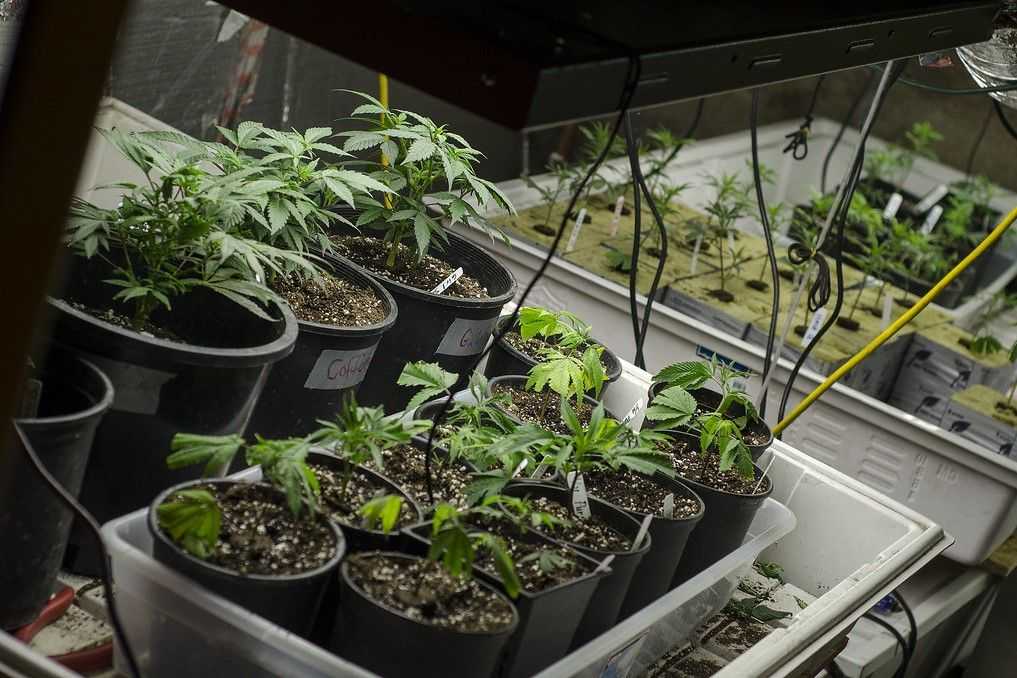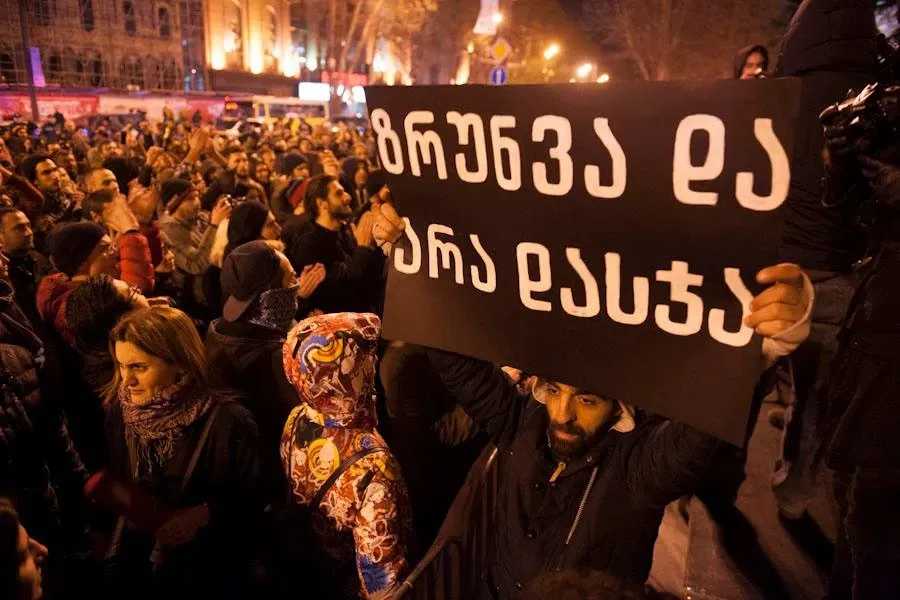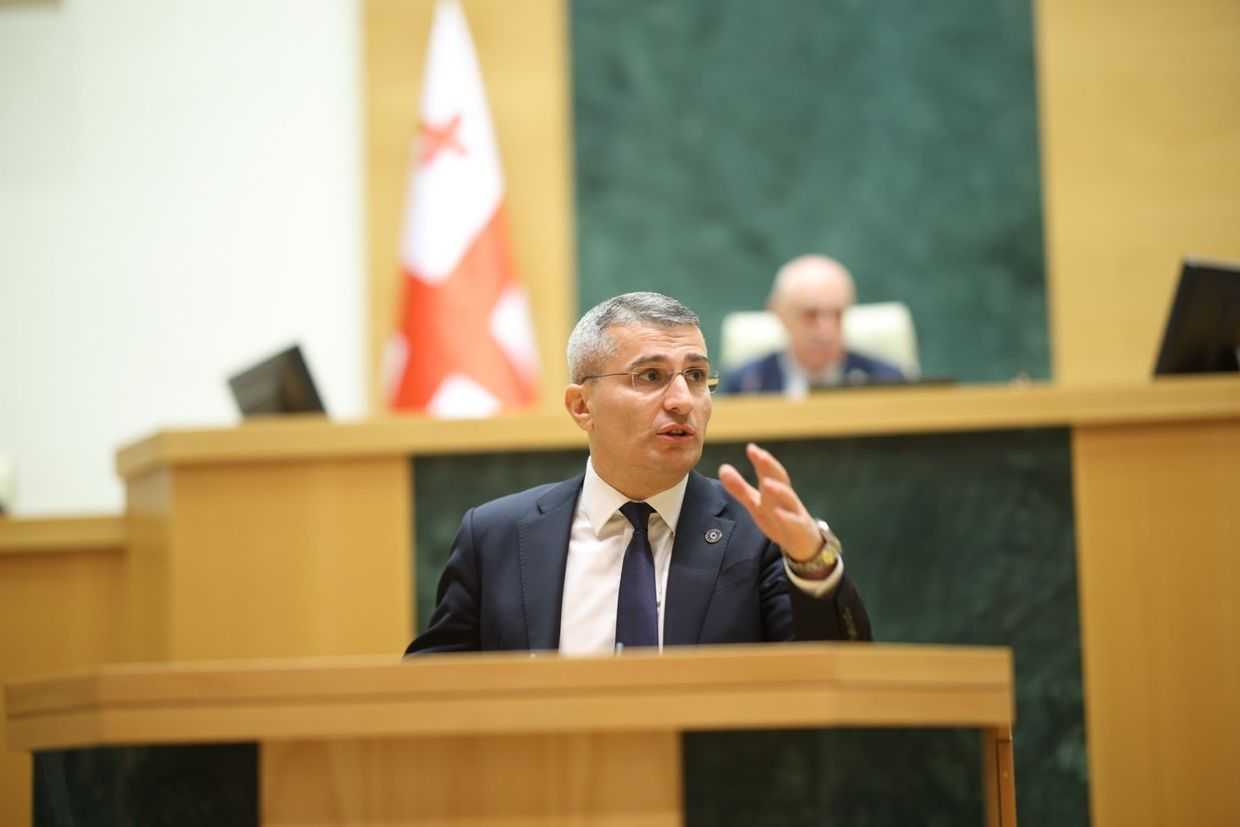
Georgian opposition party Lelo has proposed decriminalising drug use, as part of a proposal to reorient the country’s drug policy from a criminal justice approach to a healthcare one.
The proposal was announced at a press briefing by Saba Buadze, the chair of Lelo’s Tbilisi bureau, on Wednesday. He suggested that the ‘drug epidemic’ in the country was caused by the ‘criminal indifference and complicity’ of the Georgian Dream government.
In their nine-step policy, Lelo proposed:
- Decriminalisation of drug-use.
- A shift from punishment to care and prevention.
- The creation of regional treatment and rehabilitation centres for drug addicts.
- Involving professional associations and experts on drugs and addictions in developing legal regulations.
- The introduction of institutional primary prevention mechanisms.
- An ‘uncompromising fight’ against drug dealers.
- Regular drug testing of high-level political officials.
- The regulation of prescription medication.
- Establishing a visa regime for Russian citizens as a means to prevent drug trafficking.
IPN reported that Lelo’s proposal for an ‘uncompromising fight’ against drug dealers involved the identification and punishment of the patrons of drug networks, including judicial and law enforcement agencies.
Lelo’s recommendation to make drug tests obligatory for politicians would overturn Georgian Dream draft amendments to the anti-corruption law that exempt the president, MPs, ministers and their deputies, Adjarian and Abkhazian government chairs, and members of the Supreme Council from mandatory drug tests.
Georgian Dream submitted the draft law at the end of February.
In its current version, the anti-corruption law stipulates that officials must undergo drug tests upon the request of the Anti-Corruption Bureau.
IPN has reported that the policy would also include pardoning prisoners incarcerated for drug use.
In the briefing, Buadze said that his party’s recommendation to decriminalise drugs would be done to prevent drugs being used to ‘exert political influence and mobilise electoral votes, as this Russian government systematically does’.
‘You cannot fight consumption, you have to fight the problem; the consumer should not be the object of this fight’ Buadze told OC Media.
He added that Lelo suggested imposing visas on Russian nationals to reduce the inflow of drugs into Georgia, saying ‘it is Russia that is the main source of this drug infrastructure today’ and that ‘Russian traces’ could be seen in the infrastructure of drug trafficking in Georgia.
‘These are Russian groups, Russian websites, Russian-administered infrastructure, including Russian-based laboratories, where a large portion of synthetic drugs are created’, he said, without specifying which synthetic drug he was referring to.
‘Russia in its current state, undemocratic, is such a black hole in the neighbourhood, of course, it carries a very serious risk in terms of the spread of drugs. After the Russian invasion of Ukraine and the uncontrolled influx of Russians into Georgia, we have seen how the statistics of drug crimes have increased in our country.’
Lelo also recommended increasing drug abuse education and prevention in school curricula, and increasing the number of specialised psychologists and social workers in academic institutions.
Buadze told OC Media that the government ‘systematically tries to cover up’ drug-related problems in the country.
Asked if he expected other opposition groups to support Lelo’s plan, Buadze said that most opposition members do not have ‘fully formed’ opinions on the issue.
It is not yet clear how or when Lelo plans to present its recommendations to parliament.
Prime Minister Irakli Kobakhidze in February announced that his government was going to oppose ‘propaganda aimed at forming a loyal attitude towards drugs in the society’.
Lelo’s chair, Mamuka Khazaradze, presented a three-step plan to combat drug addiction in Georgia in April. The older plan advocated for mandatory drug tests for politicians, an ‘uncompromising fight’ against drug trafficking, and more state involvement in rehabilitation and fighting addiction.
There is growing evidence internationally that cracking down on drug users is ineffective in preventing drug abuse. In June 2023, the UN published a press release calling for the global decriminalisation of drug-use and possession ‘as a matter of urgency’.
‘Drug use or dependence are never a sufficient justification for detaining a person’, read the UN’s press release.
‘We urge Member States and international bodies to supersede their current drug policies with ones grounded in the principles of the application of a comprehensive, restorative and reintegrative justice approach. Effective, community-based, inclusive, and preventive measures are equally important.’









